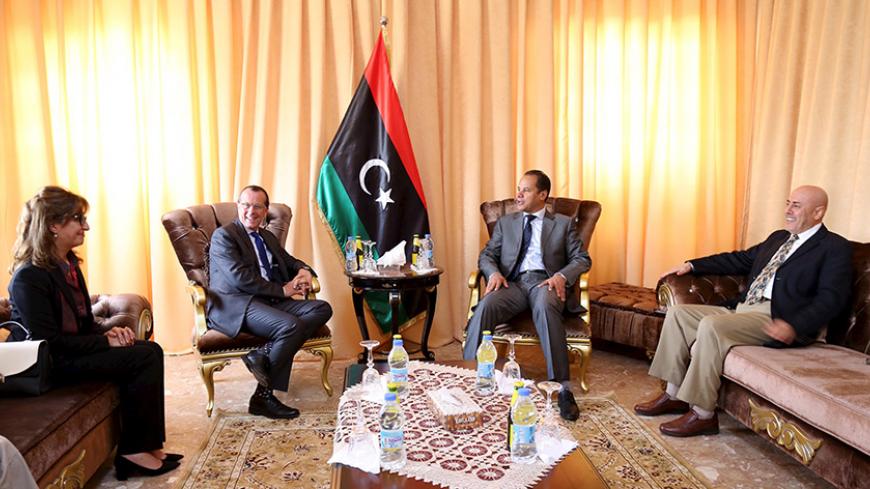Many Libya experts expected the arrival of Libya’s Government of National Accord (GNA) in Tripoli to trigger violence between militias supporting it and those opposing it, but nothing serious has yet occurred. The government, brokered by the United Nations and headed by Fayez al-Sarraj, has installed itself with minimum trouble. That said, since its establishment on March 30, the GNA has been confined to temporary headquarters, an old naval base a few kilometers west of the capital, for security reasons.
The GNA is completely dependent on local, supportive militias for protection, such as the Tripoli Revolutionary Brigade (TRB). It helped to secure its arrival and provides security details for its headquarters. Hashim Bishr, a TRB leader, told Al-Monitor, “[We are] working within the Ministry of Interior, making sure that nothing serious happens and the capital remains safe.”



